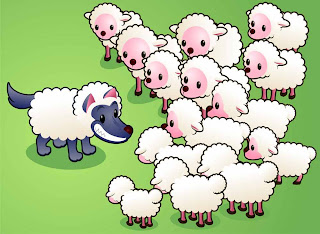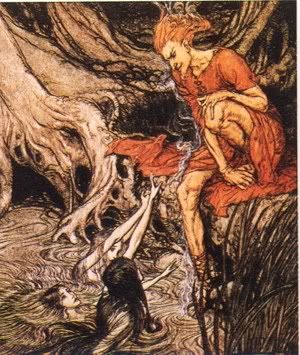The Fox without a Tail
| นิทานอีสปเรื่อง สุนัขจิ้งจอกหางด้วน |
| นิทานอีสปเรื่อง สุนัขจิ้งจอกหางด้วน |
“Distrust interested advice.”
| นิทานอีสปเรื่อง สุนัขจิ้งจอกหางด้วน |
It happened that a Fox caught its tail in a trap, and in struggling to release himself lost all of it but the stump.
มีสุนัขจิ้งจอกตัวหนึ่งหางของมันติดอยู่ที่กับดักล่าสัตว์มันจึงพยายามดิ้นเพื่อให้หางของมันหลุดจากกับดักแต่หางของมันก็ต้องขาดไป
At first he was ashamed to show himself among his fellow foxes.
ในตอนแรกมันอับอายที่จะให้เพื่อนสุนัขจิ้งจอกด้วยกันเห็นว่ามันไม่มีหาง
But at last he determined to put a bolder face upon his misfortune, and summoned all the foxes to a general meeting to consider a proposal which he had to place before them.
แต่สุดท้ายมันก็ตัดสินใจที่จะยอมรับกับความโชคร้ายในครั้งนี้มันจึงเรียกสุนัขจิ้งจอกทุกตัวมาประชุม
When they had assembled together the Fox proposed that they should all do away with their tails.
เมื่อสุนัขจิ้งจอกมาอยู่ร่วมกันในที่ประชุม เจ้าสุนัขจิ้งจอกหางด้วนจึงพยายามพูดชักจูงสุนัขจิ้งจอกตัวอื่น ๆ ให้เห็นว่าการมีหางจะทำให้พวกมันลำบาก
He pointed out how inconvenient a tail was when they were pursued by their enemies, the dogs; how much it was in the way when they desired to sit down and hold a friendly conversation with one another.
และมันยังชี้ให้เห็นว่าการมีหางนั้นเป็นสิ่งที่เกะกะ และเสียเปรียบเมื่อถูกพวกศัตรู เช่นเวลาถูกสุนัขตามล่า หรือและเกะกะเวลาเรานั่งคุยกับใคร
He failed to see any advantage in carrying about such a useless encumbrance. “That is all very well,” said one of the older foxes; “but I do not think you would have recommended us to dispense with our chief ornament if you had not happened to lose it yourself.”
มันล้มเหลวกับการชักจูงสุนัขจิ้งจอกตัวอื่นให้เห็นถึงข้อดีของการไม่มีหาง จนกระทั่งสุนัขจิ้งจอกเฒ่าตัวหนึ่งจึงพูดขึ้นมาว่า "ที่เจ้าพูดมามันก็ถูก แต่ข้าไม่คิดเช่นนั้น เจ้าพยายาจะแนะนำให้พวกเราเป็นเหมือนเจ้าที่ต้องสูญเสียหางไปก็เท่านั้นเอง "
นิทานเรื่องนี้สอนให้รู้ว่า
“Distrust interested advice.”
"คำแนะนำที่มีส่วนเกี่ยวข้องกับผลประโยชน์นั้นไม่น่าไว้ใจ"
คำศัพท์น่ารู้ (Vocabularies)
propose (v.) = เสนอให้พิจารณา pursue (v.) = ไล่ตาม
desire (v.) = ปรารถนา advantage (n.) = ข้อได้เปรียบ
struggling (n.) = การดิ้นรน stump (n.) = ส่วนที่เหลืออยู่, ตอ
ashamed (adj.) = อับอาย fail (v.) = ล้มเหลว
dispense (v.) = ให้ inconvenient (adj.) = ไม่สะดวก
enemy (n.) = ศัตรู assemble (v.) = รวมตัว
misfortune (n.) = โชคร้าย, ความอาภัพ summon (v.) = เรียกประชุม
proposal (n.) = ข้อเสนอ distrust (n.) = ความไม่น่าไว้ใจ




























